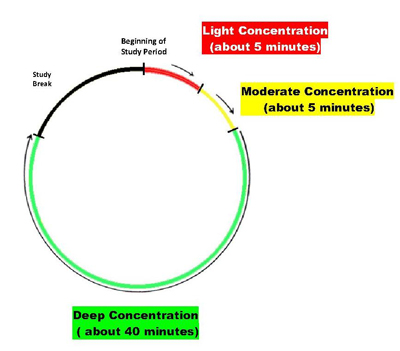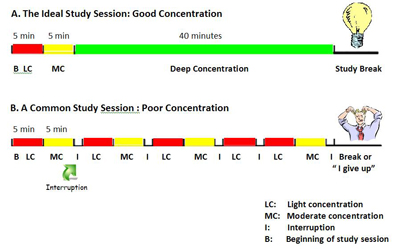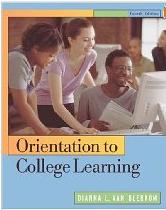
“Who dares to teach must never cease to learn”
Is this quote about the teacher possessing an unending fountain of knowledge to share, or that he must be able to relate to the nature of being a lifelong student?
Recently, I spent time relearning some higher level math. This material required focus, multiple passes, and drilling exercises to truly drive home the point and “own” the concept/knowledge (ie: be able to recognize it in the future and/or explain it to others). While requiring this 100% focus, I realized how many looming distractions I had at home which interrupt deep focus and thinking. The efficacy of superficial multi-tasking was debunked several years ago. (More on that here, here, here). It is one thing to get mindless work done while distracted (answering emails, etc), but it is a different matter entirely to learn something new and challenging with even minor distractions.
This made me reflect on my undergraduate studies in Mathematics and Computer Science, which routinely required deep focus and persistence. In the early 1990s, dorms still resembled army style barracks with cinderblock walls and few amenities. No TV, no cell phone, no texting, no landline phone (payphone at end of hallway), no laptop, no PC, no Web, no Facebook/Twitter (just a campus computer lab for typing papers). Despite such simplicity, it was *still* easy to get off-track in your dorm room (socializing friends, background noise, relaxing on the bed, listening to the stereo, etc) Therefore, we quickly learned that it wasn’t effective to study in your dorm room; it would take twice as long to do half the work. Most students opted to do their serious work in the university library. I took it a step further, and made a wooden “cubicle” in the isolated library basement my study place. Here, I could get into “deep zone” study for hours on end, with zero interference or stimuli to knock me out of the zone (See diagram below)
A woman must have money and a room of her own if she is to write fiction. -Virginia Woolfe
For certain types of work, sometimes the ideal environment is just quiet room with a desk. As a high school teacher, I have told my students to find a quiet place at home to study free from distractions (siblings, TV, pets, Facebook, etc). Today, I realize that I can’t stress this point enough. I have noticed that some students now almost involuntarily check their cell phones without even realizing they are doing it. While technology can be used as a learning tool, it can also open the door to interruptions and distractions. This prevents them from entering (or staying in) the “flow/zone”. A student must keep this in mind when establishing his ideal study environment in high school, college, and beyond.
 Diagrams adapted from: Orientation to College Learning
Diagrams adapted from: Orientation to College Learning
